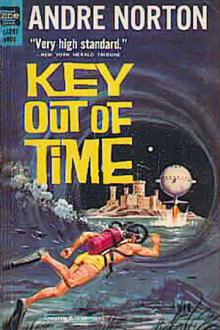Sanders of the River by Edgar Wallace (novels to read in english .TXT) 📗

- Author: Edgar Wallace
Book online «Sanders of the River by Edgar Wallace (novels to read in english .TXT) 📗». Author Edgar Wallace
"And it comes from the bite of a tsetse fly?" said Cuthbert. "Show me a tsetse."
Torrington obliged him, and when the other saw the little black insect he went white to the lips.
"My God!" he whispered, "I've been bitten by that!"
"It doesn't follow——" began Torrington; but Cuthbert was blundering and stumbling in wild fear to his carriers' camp.
"Get your loads!" he yelled. "Out of this cursed country we get as quick as we can!"
Torrington, with philosophical calm, endeavoured to reassure him, but he was not to be appeased.
He left Etebi that night and camped in the forest. Three days later he reached a mission station, where he complained of headaches and pains in the neck (he had not attended Torrington's clinics in vain). The missionary, judging from the man's haggard appearance and general incoherence that he had an attack of malaria, advised him to rest for a few days; but Cuthbert was all a-fret to reach the coast. Twenty miles from the mission, Cuthbert sent his carriers back, and said he would cover the last hundred miles of the journey alone.
To this extraordinary proposition the natives agree—from that day Cuthbert disappeared from the sight of man.
Sanders was taking a short cut through the forest to avoid the interminable twists and bends of the river, when he came suddenly upon a village of death—four sad little huts, built hastily amidst a tangle of underwood. He called, but nobody answered him. He was too wary to enter any of the crazy habitations.
He knew these little villages in the forest. It was the native custom to take the aged and the dying—especially those who died sleepily—to far-away places, beyond the reach of man, and leave them there with a week's food and a fire, to die in decent solitude.
He called again, but only the forest answered him. The chattering, noisy forest, all a-crackle with the movements of hidden things. Yet there was a fire burning which told of life.
Sanders resumed his journey, first causing a quantity of food to be laid in a conspicuous place for the man who made the fire.
He was on his way to take evidence concerning the disappearance of Cuthbert. It was the fourth journey of its kind he had attempted. There had been palavers innumerable.
Bosambo, chief of the Ochori, had sorrowfully disgorged the presents he had received, and admitted his fault.
"Lord!" he confessed, "when I was with the white man on the coast I learnt the trick of writing—it is a cursed gift—else all this trouble would not have come about. For, desiring to show my people how great a man I was, I wrote a letter in the English fashion, and sent it by messenger to the coast and thence to friends in Sierra Leone, telling them of my fortune. Thus the people in London came to know of the treasure of this land."
Sanders, in a few illuminative sentences, conveyed his impression of Bosambo's genius.
"You slave and son of a slave," he said, "whom I took from a prison to rule the Ochori, why did you deceive this white man, selling him lands that were not yours?"
"Lord!" said Bosambo simply, "there was nothing else I could sell."
But there was no clue here as to Cuthbert's whereabouts, nor at the mission station, nor amongst the carriers detained on suspicion. One man might have thrown light upon the situation, but Torrington was at home fulfilling the post of assistant examiner in mechanics at South Kensington (more in his element there) and filling in his spare time with lecturing on "The Migration of the Bantu Races."
So that the end of Sanders' fourth quest was no more successful than the third, or the second, or the first, and he retraced his steps to headquarters, feeling somewhat depressed.
He took the path he had previously traversed, and came upon the Death Camp late in the afternoon. The fire still burnt, but the food he had placed had disappeared. He hailed the hut in the native tongue, but no one answered him. He waited for a little while, and then gave orders for more food to be placed on the ground.
"Poor devil!" said Sanders, and gave the order to march. He himself had taken half a dozen steps, when he stopped. At his feet something glittered in the fading light. He stooped and picked it up. It was an exploded cartridge. He examined it carefully, smelt it—it had been recently fired. Then he found another. They were Lee-Metford, and bore the mark "'07," which meant that they were less than a year old.
He was still standing with the little brass cylinders in his hand, when Abiboo came to him.
"Master," said the Houssa, "who ties monkeys to trees with ropes?"
"Is that a riddle?" asked Sanders testily, for his mind was busy on this matter of cartridges.
Abiboo for answer beckoned him.
Fifty yards from the hut was a tree, at the foot of which, whimpering and chattering and in a condition of abject terror, were two small black monkeys tethered by ropes.
They spat and grinned ferociously as Sanders approached them. He looked from the cartridges to the monkeys and back to the cartridges again, then he began searching the grass. He found two more empty shells and a rusting lancet, such as may be found in the pocket-case of any explorer.
Then he walked back to the hut before which the fire burnt, and called softly—
"Mr. Cuthbert!"
There was no answer, and Sanders called again—
"Mr. Cuthbert!"
From the interior of the hut came a groan.
"Leave me alone. I have come here to die!" said a muffled voice.
"Come out and be civil," said Sanders coolly; "you can die afterwards."
After a few moments' delay there issued from the door of the hut the wreck of a man, with long hair and a month-old beard, who stood sulkily before the Commissioner.
"Might I ask," said Sanders, "what your little game is?"
The other shook his head wearily. He was a pitiable sight. His clothes were in tatters; he was unwashed and grimy.
"Sleeping sickness," he said wearily. "Felt it coming on—seen what horrible thing it was—didn't want to be a burden. Oh, my God! What a fool I've been to come to this filthy country!"
"That's very likely," said Sanders. "But who told you that you had sleeping sickness?"
"Know it—know it," said the listless man.
"Sit down," said Sanders. The other obeyed, and Sanders applied the superficial tests.
"If you've got sleeping sickness," said Sanders, after the examination, "I'm suffering from religious mania—man, you're crazy!"
Yet there was something in Cuthbert's expression that was puzzling. He was dull, heavy, and stupid. His movements were slow and lethargic.
Sanders watched him as he pulled a black wooden pipe from his ragged pocket, and with painful slowness charged it from a skin pouch.
"It's got me, I tell you," muttered Cuthbert, and lit the pipe with a blazing twig from the fire. "I knew it (puff) as soon as that fellow Torrington (puff) described the symptoms (puff);—felt dull and sleepy—got a couple of monkeys and injected my blood (puff)—they went drowsy, too—sure sign——"
"Where did you get that tobacco from?" demanded Sanders quickly.
Cuthbert took time to consider his answer.
"Fellow gave it me—chief fellow, Bosambo. Native tobacco, but not bad—he gave me a devil of a lot."
"So I should say," said Sanders, and reaching over took the pouch and put it in his pocket.
When Sanders had seen Mr. Cuthbert safe on board a homeward-bound steamer, he took his twenty Houssas to the Ochori country to arrest Bosambo, and expected Bosambo would fly; but the imperturbable chief awaited his coming, and offered him the customary honours.
"I admit I gave the white man the hemp," he said. "I myself smoke it, suffering no ill. How was I to know that it would make him sleep?"
"Why did you give it to him?" demanded Sanders.
Bosambo looked the Commissioner full in the face.
"Last moon you came, lord, asking why I gave him the Isisi country and the rights of the little river, because these were not mine to give. Now you come to me saying why did I give the white man native tobacco—Lord, that was the only thing I gave him that was mine."
CHAPTER V. THE SPECIAL COMMISSIONER.
The Hon. George Tackle had the good fortune to be the son of his father; otherwise I am free to confess he had no claim to distinction. But his father, being the proprietor of the Courier and Echo (with which are incorporated I don't know how many dead and gone stars of the Fleet Street firmament), George had a "pull" which no amount of competitive merit could hope to contend with, and when the stories of atrocities in the district of Lukati began to leak out and questions were asked in Parliament, George opened his expensively-bound Gazetteer, discovered that the district of Lukati was in British territory, and instantly demanded that he should be sent out to investigate these crimes, which were a blot upon our boasted civilisation.
His father agreed, having altogether a false appreciation of his son's genius, and suggested that George should go to the office and "get all the facts" regarding the atrocities. George, with a good-natured smile of amusement at the bare thought of anybody instructing him in a subject on which he was so thoroughly conversant, promised; but the Courier and Echo office did not see him, and the librarian of the newspaper, who had prepared a really valuable dossier of newspaper cuttings, pamphlets, maps, and health hints for the young man's guidance, was dismayed to learn that the confident youth had sailed without any further instruction in the question than a man might secure from the hurried perusal of the scraps which from day to day appeared in the morning press.
As a special correspondent, I adduce, with ill-suppressed triumph, the case of the Hon. George Tackle as an awful warning to all newspaper proprietors who allow their parental affections to overcome their good judgment.
All that the Hon. George knew was that at Lukati there had been four well-authenticated cases of barbarous acts of cruelty against natives, and that the Commissioner of the district was responsible for the whippings and the torture. He thought, did the Hon. George, that this was all that it was necessary to know. But this is where he made his big mistake.
Up at Lukati all sorts of things happened, as Commissioner Sanders knows, to his cost. Once he visited the district and left it tranquil, and for Carter, his deputy, whom he left behind, the natives built a most beautiful hut, planting gardens about, all off their own bat.
One day, when Carter had just finished writing an enthusiastic report on the industry of his people, and the whole-hearted way they were taking up and supporting the new régime, the chief of the village, whom Carter had facetiously named O'Leary (his born name was indeed Olari), came to him.
Carter at the moment was walking through the well-swept street of the village with his hands in his coat pockets and his big white helmet tipped on the back of his head because the sun was setting at his back.
"Father," said the Chief Olari, "I have brought these people to see you."
He indicated with a wave of his hand six strange warriors carrying their shields and spears, who looked at him dispassionately.
Carter nodded.
"They desire," said Olari, "to see the wonderful little black fetish that my father carries in his pocket that they may tell their people of its powers."
"Tell your people," said Carter good-humouredly, "that I have not got the fetish with me—if they will come to my hut I will show them its wonders."
Whereupon Olari lifted his spear and struck at Carter, and the six warriors sprang forward together. Carter fought gamely, but he was unarmed.
When Sanders heard the news of his subordinate's death he did not faint or fall into a fit of insane cursing. He was sitting on his broad verandah at headquarters when the dusty messenger came. He rose with pursed lips and frowning eyes, fingering the letter—this came from Tollemache, inspector of police at Bokari—and paced the verandah.
"Poor chap, poor chap!" was all that he said.
He sent no message to Olari; he made no preparations for a punitive raid; he went on signing documents, inspecting Houssas, attending dinner parties, as though Carter had never lived or died. All these things the spies of Olari reported, and the chief was thankful.
Lukati being two hundred miles from headquarters, through a savage and mountainous country, an expedition was no light undertaking, and the British Government, rich as it is, cannot afford to spend a hundred thousand pounds to avenge the death of a subordinate official. Of this fact





Comments (0)